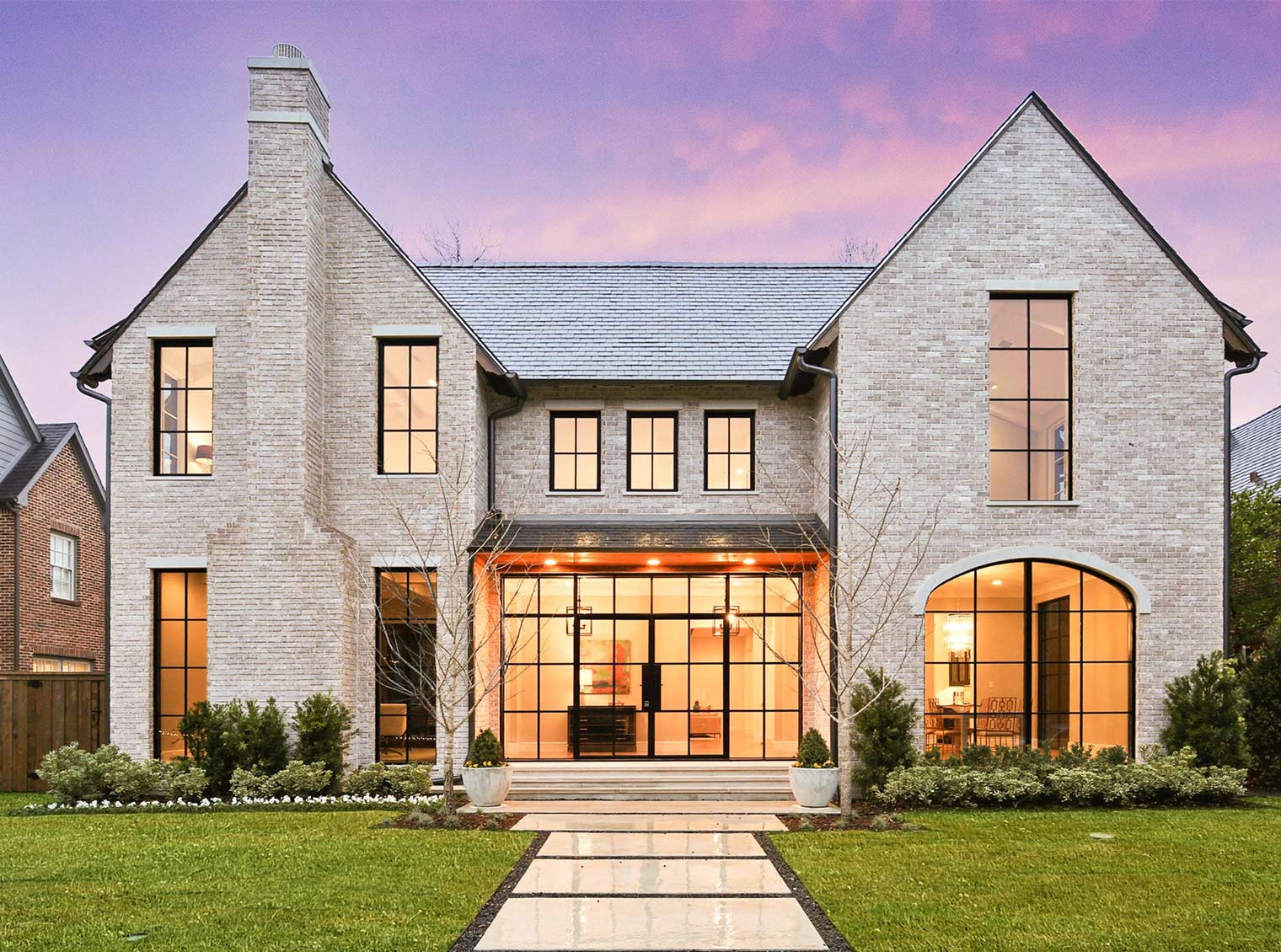Do you own land, possibly with worn out residential or commercial property on it? One way to extract worth from the land is to sign a ground lease. This will permit you to make earnings and potentially capital gains. In this post, we'll check out,
- What is a Ground Lease?
- How to Structure Them
- Examples of Ground Leases
- Pros and Cons
- Commercial Lease Calculator
- How Assets America Can Help
- Frequently Asked Questions
What is a Ground Lease?
In a ground lease (GL), a renter develops a piece of land throughout the lease duration. Once the lease ends, the tenant turns over the residential or commercial property enhancements to the owner, unless there is an exception.
Importantly, the occupant is accountable for paying all residential or commercial property taxes throughout the lease duration. The inherited enhancements permit the owner to sell the residential or commercial property for more money, if so preferred.
Common Features
Typically, a ground lease lasts from 35 to 99 years. Normally, the lessee takes a lease on some raw or ready land and constructs a building on it. Sometimes, the land has a structure currently on it that the lessee should destroy.

The GL defines who owns the land and the improvements, i.e., residential or commercial property that the lessee constructs. Typically, the lessee controls and depreciates the improvements during the lease duration. That control goes back to the owner/lessor upon the expiration of the lease.
Apply For Financing
Ground Lease Subordination

One crucial element of a ground lease is how the lessee will fund enhancements to the land. A key plan is whether the property owner will accept subordinate his top priority on claims if the lessee defaults on its debt.
That's exactly what occurs in a subordinated ground lease. Thus, the residential or commercial property deed becomes security for the loan provider if the lessee defaults. In return, the proprietor asks for higher lease on the residential or commercial property.
Alternatively, an unsubordinated ground lease keeps the property owner's leading concern claims if the leaseholder defaults on his payments. However this may discourage lending institutions, who would not be able to occupy in case of default. Accordingly, the property owner will normally charge lower rent on unsubordinated ground leases.
How to Structure a Ground Lease
A ground lease is more complex than regular business leases. Here are some elements that enter into structuring a ground lease:
1. Term
The lease must be sufficiently long to permit the lessee to amortize the expense of the enhancements it makes. In other words, the lessee needs to make enough earnings during the lease to spend for the lease and the improvements. Furthermore, the lessee needs to make a reasonable return on its financial investment after paying all expenses.
The greatest driver of the lease term is the financing that the lessee organizes. Normally, the lessee will desire a term that is 5 to ten years longer than the loan amortization schedule.
On a 30-year mortgage, that implies a lease term of at least 35 to 40 years. However, junk food ground leases with shorter amortization durations might have a 20-year lease term.
2. Rights and Responsibilities

Beyond the plans for paying lease, a ground lease has several distinct functions.
For instance, when the lease ends, what will occur to the enhancements? The lease will define whether they revert to the lessor or the lessee should remove them.
Another feature is for the lessor to help the lessee in obtaining needed licenses, licenses and zoning variations.
3. Financeability
The loan provider should draw on safeguard its loan if the lessee defaults. This is challenging in an unsubordinated ground lease since the lessor has initially top priority when it comes to default. The lending institution just has the right to declare the leasehold.
However, one remedy is a clause that needs the follower lessee to use the lender to fund the brand-new GL. The topic of financeability is complex and your legal specialists will require to wade through the numerous complexities.
Remember that Assets America can assist finance the building or restoration of industrial residential or commercial property through our network of private financiers and banks.
4. Title Insurance
The lessee should organize title insurance for its leasehold. This requires special recommendations to the regular owner's policy.
5. Use Provision
Lenders desire the broadest usage arrangement in the lease. Basically, the arrangement would enable any legal function for the residential or commercial property. In this method, the loan provider can more quickly offer the leasehold in case of default.
The lessor may deserve to approval in any new purpose for the residential or commercial property. However, the lender will look for to restrict this right. If the lessor feels strongly about prohibiting specific uses for the residential or commercial property, it ought to specify them in the lease.
6. Casualty and Condemnation
The loan provider controls insurance coverage earnings coming from casualty and condemnation. However, this might contravene the standard phrasing of a ground lease, which provides some control to the lessor.
Unsurprisingly, loan providers want the insurance coverage proceeds to approach the loan, not residential or commercial property remediation. Lenders likewise require that neither lessors nor lessees can terminate ground leases due to a casualty without their authorization.
Regarding condemnation, loan providers insist upon getting involved in the procedures. The loan provider's requirements for using the condemnation proceeds and managing termination rights mirror those for casualty occasions.
7. Leasehold Mortgages
These are mortgages funding the lessee's enhancements to the ground lease residential or commercial property. Typically, loan providers balk at lessor's keeping an unsubordinated position with respect to default.
If there is a preexisting mortgage, the mortgagee must concur to an SNDA contract. Usually, the GL lending institution desires first top priority concerning subtenant defaults.
Moreover, lending institutions require that the ground lease stays in force if the lessee defaults. If the lessor sends a notice of default to the lessee, the loan provider needs to get a copy.
Lessees desire the right to acquire a leasehold mortgage without the lender's consent. Lenders want the GL to function as collateral needs to the lessee default.
Upon foreclosure of the residential or commercial property, the loan provider gets the lessee's leasehold interest in the residential or commercial property. Lessors might want to restrict the kind of entity that can hold a leasehold mortgage.
8. Rent Escalation
Lessors want the right to increase rents after specified durations so that it keeps market-level leas. A "cog" boost uses the lessee no defense in the face of a financial slump.
Ground Lease Example
As an example of a ground lease, consider one signed for a Starbucks drive-through shipping container store in Portland.
Starbucks' principle is to sell decommissioned shipping containers as an environmentally friendly alternative to standard building and construction. The very first shop opened in Seattle, followed by Kansas City, Denver, Chicago, and one in Portland, OR.
It was a rather unusual ground lease, in that it was a 10-year triple-net ground lease with 4 5-year alternatives to extend.
This provides the GL an optimal term of 30 years. The rent escalation stipulation offered a 10% rent increase every five years. The lease worth was just under $1 million with a cap rate of 5.21%.
The preliminary lease terms, on an annual basis, were:
- 09/01/2014 - 08/31/2019 @ $52,000.
- 09/01/2019 - 08/31/2024 @ $57,200.
- 09/01/2024 - 08/31/2029 @ $62,920.
- 09/01/2029 - 08/31/2034 @ $69,212.
- 09/01/2034 - 08/31/2039 @ $76,133.
- 09/01/2039 - 08/31/2044 @ $83,747
Ground Lease Pros & Cons

Ground leases have their benefits and downsides.
The advantages of a ground lease include:
Affordability: Ground rents permit occupants to develop on residential or commercial property that they can't manage to purchase. Large chain shops like Starbucks and Whole Foods utilize ground leases to broaden their empires. This enables them to grow without saddling the companies with too much financial obligation.
No Deposit: Lessees do not need to put any money to take a lease. This stands in stark contrast to residential or commercial property purchasing, which might need as much as 40% down. The lessee gets to conserve money it can deploy somewhere else. It also improves its return on the leasehold investment.
Income: The lessor gets a steady stream of income while retaining ownership of the land. The lessor keeps the worth of the earnings through making use of an escalation clause in the lease. This entitles the lessor to increase leas regularly. Failure to pay rent offers the lessor the right to kick out the renter.
The downsides of a ground lease include:
Foreclosure: In a subordinated ground lease, the owner risks of losing its residential or commercial property if the lessee defaults.
Taxes: Had the owner simply sold the land, it would have received capital gains treatment. Instead, it will pay ordinary business rates on its lease income.
Control: Without the required lease language, the owner may lose control over the land's development and usage.
Borrowing: Typically, ground leases forbid the lessor from obtaining versus its equity in the land throughout the ground lease term.
Ground Lease Calculator
This is a terrific business lease calculator. You get in the location, rental rate, and representative's charge. It does the rest.

How Assets America Can Help
Assets America ® will set up funding for commercial projects starting at $20 million, without any upper limitation. We invite you to contact us to find out more about our total monetary services.
We can help fund the purchase, building and construction, or renovation of business residential or commercial property through our network of personal financiers and banks. For the finest in commercial property funding, Assets America ® is the wise choice.
- What are the various types of leases?
They are gross leases, modified gross leases, single net leases, double net leases and triple net leases. The likewise consist of absolute leases, portion leases, and the subject of this short article, ground leases. All of these leases provide benefits and downsides to the lessor and lessee.
- Who pays residential or commercial property taxes on a ground lease?
Typically, ground leases are triple internet. That indicates that the lessee pays the residential or commercial property taxes during the lease term. Once the lease expires, the lessor becomes responsible for paying the residential or commercial property taxes.
- What occurs at the end of a ground lease?
The land constantly reverts to the lessor. Beyond that, there are two possibilities for completion of a ground lease. The first is that the lessor acquires all enhancements that the lessee made during the lease. The 2nd is that the lessee needs to destroy the enhancements it made.

- For how long do ground leases typically last?
Typically, a ground lease term extends to at lease 5 to 10 years beyond the leasehold mortgage. For example, if the lessee takes a 30-year mortgage on its enhancements, the lease term will run for a minimum of 35 to 40 years. Some ground rents extend as far as 99 years.







